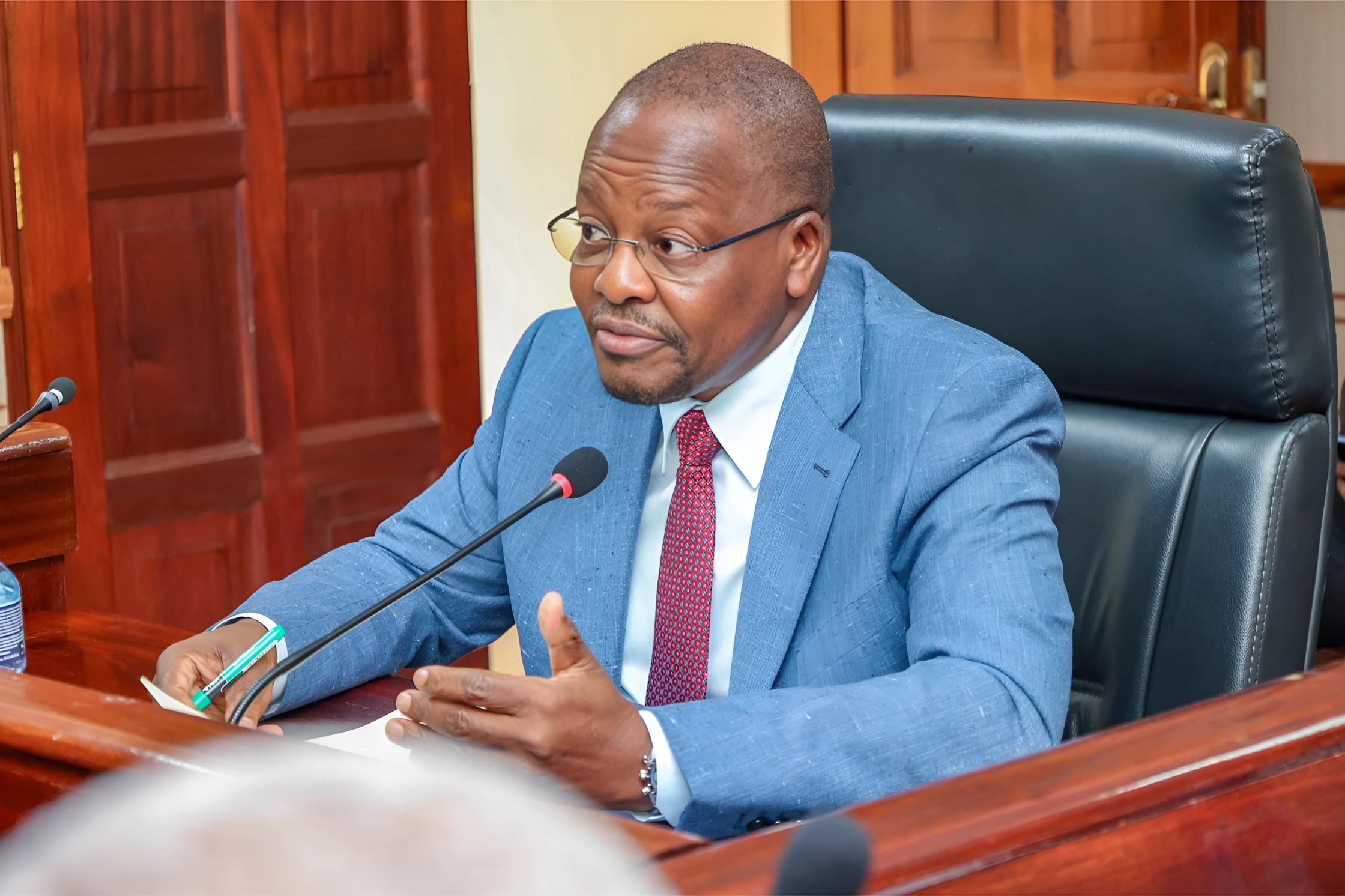Senators summon CS Kagwe over controversial sugar mill leases

Senators have summoned Agriculture Cabinet Secretary Mutahi Kagwe to explain the government’s decision to lease four state-owned sugar mills, a move that has stirred sharp criticism from lawmakers and leaders in sugarcane-growing regions.
The Senate’s Standing Committee on Trade, Industrialisation and Tourism, chaired by Kwale Senator Issa Juma, is demanding full disclosure of the leasing process. The committee wants access to the lease agreements, details of public participation, lists of each factory’s assets and liabilities, and clarity on the role of the Privatisation Commission.
The leasing arrangement involves a 30-year handover of Nzoia, Chemelil, Sony, and Muhoroni sugar companies to private millers.
Nzoia has been leased to West Kenya Sugar Company, Chemelil to Kibos Sugar and Allied Industries, Sony to Busia Sugar Industry, and Muhoroni to West Valley Sugar Company.
Senator Juma said the committee is particularly focused on whether farmers and factory workers were adequately considered during the process. The committee also wants to establish if the leasing respects existing court rulings and whether it genuinely benefits the local communities.
The summons came shortly after a group of leaders from Western Kenya threatened legal action to stop the leasing of Nzoia Sugar Company. Lawmakers, including MPs Majimbo Kalasinga (Kabuchai) and Tindi Mwale (Butere), and Senators Edwin Sifuna (Nairobi), Godfrey Osotsi (Vihiga), and Okiya Omtatah (Busia), accused the Ministry of Agriculture of bypassing court orders and excluding key stakeholders.
Senator Omtatah questioned the impact of the leasing on farmers, workers, and regional economies.
“What is the impact of leasing out the sugar companies on farmers, employees, and local economies, and the safeguards in place to protect public assets and ensure continued service delivery and economic empowerment in sugar-growing regions?” he asked.
Senator Sifuna voiced concern about the manner in which the leasing was conducted.
“If you are leasing out the sugar mills, and the person is not interested in reviving the mills, but is only after the land owned by that particular sugar plant, there is going to be a problem,” he said.
He argued that instead of leasing Nzoia Sugar Company, the government should upgrade its equipment to improve production. “Nzoia Sugar has the biggest nucleus, and the people of Bungoma will not allow that land to be taken because they consider it their land,” he said.
Senator Osotsi added that the process was carried out without public involvement. “The process was done opaquely. Even if the Government has good intentions on doing something, can they involve the people and leaders of that region, instead of just waking up and saying they want to lease Nzoia Sugar Company?” he said.
He further criticised privatisation as a failed approach, citing the downfall of Mumias Sugar Company after it was privatised.
“The problems started increasing upon the privatisation of Mumias Sugar Company, where the management could not listen to anyone. The solution is not the privatisation of sugar companies.”
Nandi Senator Samson Cherargei warned against rushing the process.
“I request the Government not to be in a hurry because there will be a lot of legal hurdles that might affect this process,” he said. He also called for Nandi to be included in the leasing plan for Chemelil and West Kenya Sugar.
Kakamega Senator Boni Khalwale questioned the level of consultation in the leasing of Nzoia. “Consulting those two leaders does not amount to public participation over Nzoia Sugar Company. I speak for 1.8 million people. These two leaders have accepted the factory to be leased to a guy called Rai, who took over Webuye Pan Paper Company. We refuse again and again,” he said.
Despite the opposition, the Council of Governors has backed the leasing. Council Chair Ahmed Abdullahi, Vice Chair Mutahi Kahiga, and Agriculture Committee Chair Ken Lusaka urged stakeholders to give the reforms a chance.
“As a council, we support the leasing and privatisation of public sugar companies. We see privately managed sugar companies making significant profits,” Ahmed said.
He argued that the reform would save foreign exchange by reducing sugar imports.
“The leasing will save on the forex used to import sugar,” he said, noting that proper procedures had been followed.
Agriculture CS Mutahi Kagwe defended the leasing and said the four firms were competitively selected after years of stakeholder consultations.
“The procurement of the four firms followed broad-based engagement with stakeholders across the sugar sector dating back to the year 2015 when Parliament approved the process,” he said.
Kagwe assured that the lease only involves operational control and that land remains government-owned. “All assets belonging to the four sugar companies, including land, will remain the property of the national government,” he said.
He explained that lease fees would be collected by the Kenya Sugar Board and reinvested in local communities and cane farming.
The CS also announced a total investment of Sh12.29 billion from the four millers to upgrade the factories. West Kenya will invest Sh5.76 billion in Nzoia, Kibos Sh4.5 billion in Chemelil, West Valley Sh1.02 billion in Muhoroni, and Busia Sugar Sh1 billion in Sony.
A goodwill payment of over Sh521 million will also be made by the companies for leasing the land, with additional fees supporting development around the mills.
Kagwe said the Kenya Sugar Board will collect Sh1.5 billion in concession fees and Sh240 million from molasses sales to fund farmer bonuses.
To address pending dues, Kagwe said the government had paid Sh1.7 billion in arrears to farmers and will release another Sh500 million in July.
A further Sh1 billion will be used to clear worker payments, with Sh600 million going toward staff arrears and Sh400 million for salaries from May 2025.
He added that Sh1.5 billion would be released in July, with quarterly payments of Sh1.17 billion planned to settle all outstanding debts.
“The leasing process was transparent, guided by parliamentary approval, and involved thorough consultation with farmers, unions, MPs, and county leaders,” Kagwe said.
“We will share all documents with Parliament and the public. All concerns will be addressed.”
